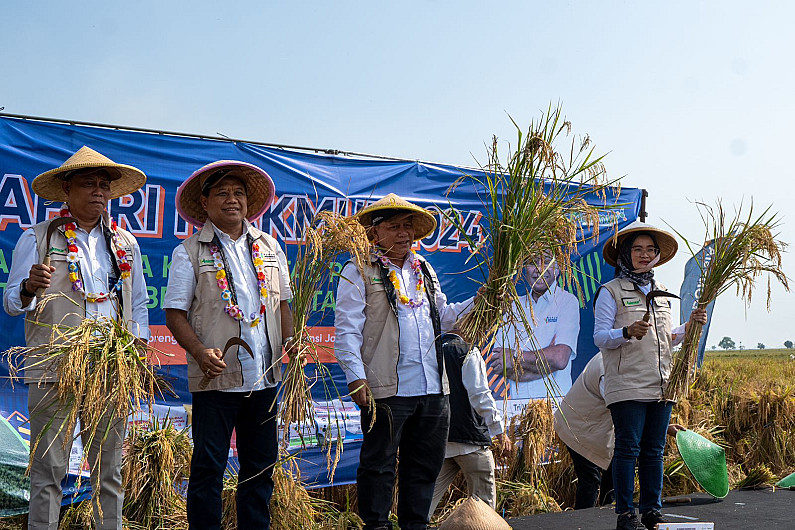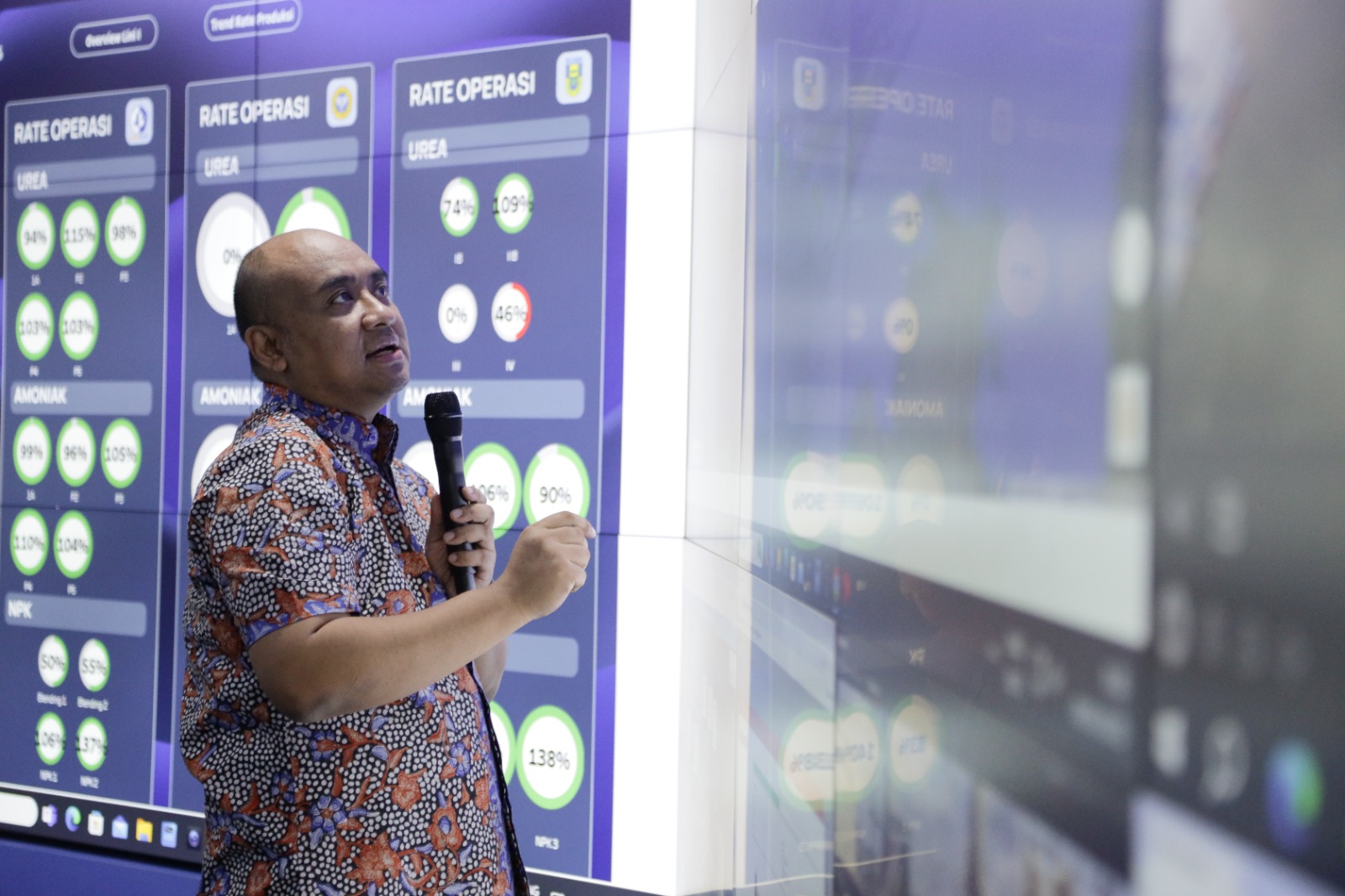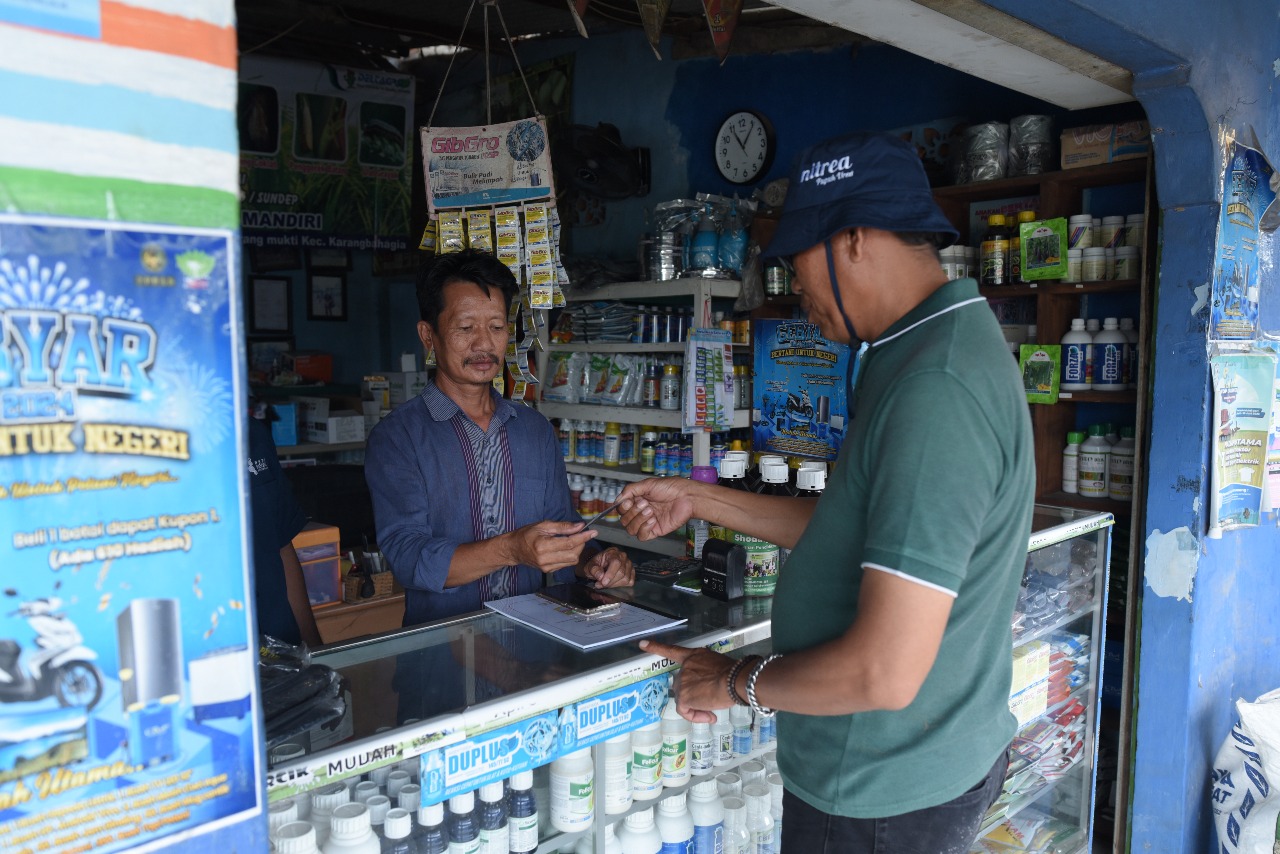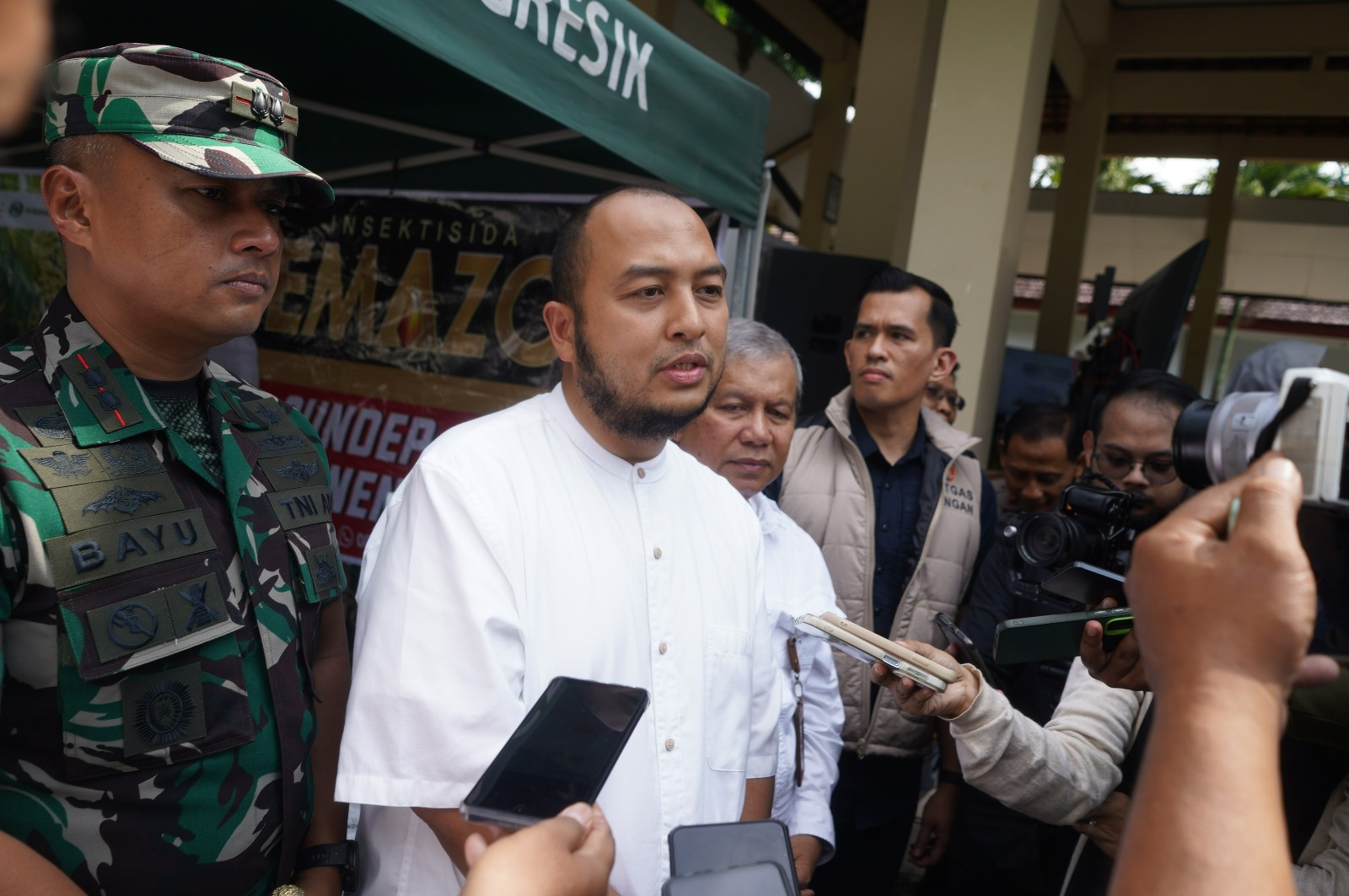Optimalkan Hasil Panen Program Makmur, Pupuk Indonesia Terapkan Teknologi Pertanian Presisi Dalam Budidaya Padi di Subang

Subang, 21 Oktober 2024 - PT Pupuk Indonesia (Persero) berkomitmen terus mengoptimalkan produktivitas Program Makmur (“Mari Kita Majukan Usaha Rakyat”) dengan menerapkan teknologi pertanian presisi “Preci-Rice” pada budidaya padi di Desa Mekarjaya, Kec. Compreng, Kab. Subang, Jawa Barat. Dalam panen yang dihadiri Direktur Pemasaran Pupuk Indonesia, Tri Wahyudi Saleh, Senin (21/10/2024), terdapat peningkatan hasil panen petani Mekarjaya dari 10 ton/Ha menjadi 11 ton/Ha.
"Produktivitas padi di Subang memang sudah tinggi, jauh di atas rata-rata nasional. Alhamdulillah dengan teknologi Preci-rice, hasil panennya masih bisa dioptimalkan lagi. Ada kenaikan 8,54 persen," ujar Tri Wahyudi Saleh.
Ia pun menjelaskan, Preci-rice merupakan teknologi yang dikembangkan oleh Pupuk Indonesia untuk mendeteksi kandungan status hara tanah berupa N, P, dan K pada tanaman padi. Teknologi yang memanfaatkan alat Drone ini mampu memberikan rekomendasi pemupukan padi dengan cepat dan presisi sesuai dengan kebutuhan tanaman.
Dalam program Makmur yang bekerja sama dengan Kelompok Tani Sumber Jaya di Desa Mekarjaya ini, Preci-rice telah melakukan mapping pada lahan seluas 174 Ha. Adapun rekomendasi yang diberikan oleh Preci-rice yaitu NPK sebanyak 368 kg/Ha dan Urea 189 kg/Ha.
Sementara, implementasi di lapangan, petani menggunakan masing-masing 200 kg NPK dan 200 kg Urea di umur 7 – 15 HST, yang diperoleh dari alokasi pupuk subsidi sesuai RDKK pada pemupukan pertama. Disebabkan, ada selisih kebutuhan pupuk dari hasil Drone Mapping Preci-Rice, kemudian direkomendasi penambahan pupuk non-subsidi Nitrea 100 kg, NPK Phonska Plus 150 kg, dan Nitrokal 50 kg pada pemupukan kedua di umur 25 – 30 HST.
"Kami melakukan pendampingan, kami melakukan drone mapping tentang kesuburan tanaman. Kami melihat unsur apa sih yang kurang dari tanaman di sini, sehingga para petani tidak sembarangan menebar pupuk," ujar Tri Wahyudi Saleh.
"Ini bagian dari edukasi kami, jumlah anakan tanaman padi dengan pemupukan yang presisi sangat banyak, sehingga panennya lebih optimal," imbuhnya.
Lebih lanjut ia menambahkan, teknologi Preci-rice ini mendukung layanan Mobil Uji Tanah (MUT) yang juga ada pada pendampingan budidaya Program Makmur. Apabila Preci-Rice mendeteksi kebutuhan hara pada tanaman, sementara MUT ini mendeteksi kandungan hara pada tanah.
Sementara itu program Makmur merupakan ekosistem pertanian dari hulu hingga hilir, baik on farm maupun off farm. Pupuk Indonesia bertugas melakukan pendampingan budidaya. Di Subang ini, Program Makmur juga berkolaborasi dengan Bulog, ID FOOD, Sang Hyang Seri, ASKRINDO dan stakeholder lainnya merupakan bukti komitmen bersama terhadap pembangunan sektor pertanian di Kabupaten Subang.
Adapun pelaksanaan Makmur Pupuk Indonesia secara nasional saat ini telah melampaui target. Realisasi periode Januari – September 2024 seluas 368.324 Ha atau 136 persen dari target tahun 2024 seluas 350.000 Ha. Sementara jumlah petani binaan Makmur sebanyak 145.928 orang.
Di tempat yang sama, Direktur Pupuk dan Pestisida Kementerian Pertanian Republik Indonesia, Bapak Jekvy Hendra menambahkan, tantangan dunia pertanian saat ini adalah degradasi tanah dan penurunan produktivitas. Tantangan ini harus dijawab dengan solusi dan pendampingan teknologi. Langkah strategis Pupuk Indonesia ini, merupakan upaya konkrit dan kontribusi nyata untuk kemajuan pertanian Indonesia, imbuhnya.
Selanjutnya Bapak Jekvy Hendra, menjelaskan "Pemupukan berimbang dengan memperhatikan kualitas tanah ini penting dilakukan, karena banyak di daerah-daerah di Indonesia yang kebablasan menggunakan pupuk. Di tempat lain ada yang menggunakan 800 kg/Ha padahal kebutuhannya hanya 175 kg/Ha. Ada yang salah dalam penyampaian informasi, terima kasih sekali teman-teman Pupuk Indonesia yang telah menyiapkan teknologi untuk pemupukan presisi,” pungkasnya.







